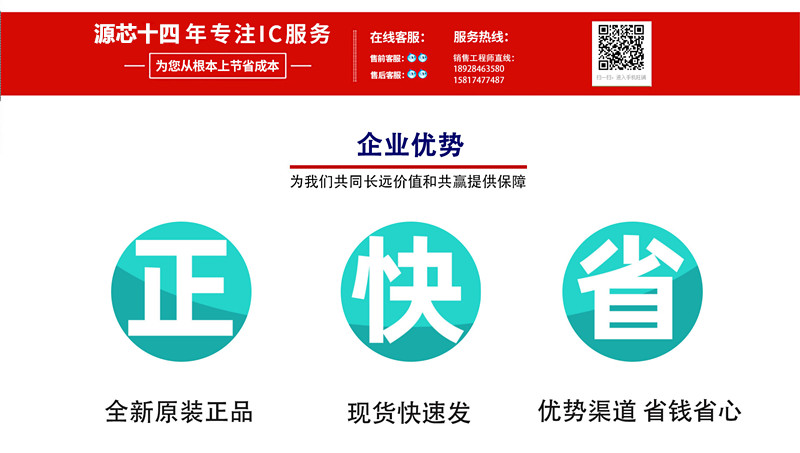Suggestions from the representatives of the two sessions: Develop a Chinese chip bill to strengthen technological capabilities and achieve self-sufficiency, in order to maintain long-term competitiveness against the United States
On March 4th, the National Two Sessions officially opened. Integrated circuits have become the focus of the two sessions, and as the core of the modern electronic industry and a strategic, fundamental, and leading industry for national economic and social development, they may become a strategic industry strongly supported by this government.
According to media rumors, China plans to allocate $143 billion over the next five years to promote chip research and development. This fund will be used to provide tax incentives and subsidies to chip production enterprises and research and development activities. Against the backdrop of the increasing pressure of US imperialism and its alliance on Chinese high-tech enterprises, the era of unlimited prosperity for consumer technology enterprises and those producing hard core technology may have come to an end. Chips represent the pinnacle of national technological strength and have made a shining appearance. Representatives from the two sessions will collectively speak on behalf of the entire semiconductor industry chain - formulating chip regulations, strengthening technological capabilities, and achieving self-sufficiency, To maintain competitiveness against the United States in the long term.

The following is a summary of important opinions on semiconductors from representative media interviews of the two sessions of the Future Semiconductor Organization:
#Formulation of the Chip Promotion Law of the People‘s Republic of China
Xie Shanghua, vice chairman of the CPPCC Sichuan Provincial Committee, said that China‘s chip industry has a low level of regulation. The current policies that have been introduced mainly include regulations and departmental rules at the State Council level. There is a high degree of external dependence, with a localization rate of less than 10% for Chinese chip equipment, 90% of chips relying on imports, and core technologies being locked in. National security risks are increasing. China‘s situation in the chip industry is becoming increasingly constrained by people.
Suggest accelerating the process of chip legislation and implementing the chip power strategy. Putting the development of chips and integrated circuits at the height of national security strategy, the National People‘s Congress will lead relevant departments to formulate the "Chip Promotion Law of the People‘s Republic of China". The State Council and relevant departments will take the lead in formulating regulations and departmental rules related to chips and integrated circuits, in the form of legal regulations and departmental rules, to ensure the sustained healthy and high-quality development of chips and software in the medium to long term in the future. Adhere to the principle of "one game of chess for the whole country", concentrate advantageous resources, fully utilize advantages, and collaborate with advantageous enterprises to tackle key problems, collaborate, and develop a joint layout. Support the research of equipment components and advanced processes at 7nm, 5nm, and 3nm, and support the sustained and healthy development of large-scale industrial software such as EDA software, in order to prevent sudden and blind development.

#Strengthening the top-level design of the electronic specialty gas industry
Electronic specialty gas is an indispensable key raw material in the production and manufacturing process of integrated circuits, display panels, photovoltaic energy, fiber optic cables, and other electronic industries. Zheng Yueming, a representative of the National People‘s Congress and chairman of Lianhong Xinke, stated that the top-level design of the electronic special gas industry should be strengthened, the research and development and industrialization of high-purity electronic special gases should be accelerated, and high-quality enterprises should be supported to grow and strengthen, thereby improving the localization rate of electronic special gases.
#Promote the development of independent and controllable IP for integrated circuits
Zhang Ying, Deputy Director of the Shanghai Municipal Economic and Information Technology Commission and Deputy Chairman of the Shanghai Municipal Committee of the Agricultural and Workers‘ Party, stated that there are four "urgent improvements" in China‘s integrated circuit research and development industrialization ability compared to international advanced enterprises: the safety and controllability of the integrated circuit core and bulk product industry chain need to be improved; The process level and process capability of domestic wafer factories urgently need to be improved; The empowerment of artificial intelligence for the development of integrated circuits urgently needs improvement; The integrity of the integrated circuit ecosystem urgently needs to be improved.
It is recommended to focus on promoting the collaborative development of manufacturing and design, promoting the development of independent and controllable IP for integrated circuits, promoting the digital empowerment of integrated circuits by artificial intelligence, and promoting the continuous improvement of the integrated circuit ecosystem.
#Strengthening the core standard system and independent IP intellectual property rights
Deng Zhonghan, a member of the CPPCC National Committee, an academician of the CAE Member, and the commander in chief of the "Starlight China Core Project", said that standards are an important support for scientific and technological innovation and socio-economic development, and an important carrier of technical rules and basic systems. In the era of digital economy, important technological standards with core intellectual property rights are pioneers in new technologies, industries, formats, and models.
In the post Moore era, it is necessary to strengthen the construction of the core standard system, strive to achieve standardization autonomy, establish independent IP intellectual property rights, establish an independent application software ecosystem, build production processes for independent materials and equipment, and form an ecosystem led by China‘s independent standards. While emphasizing autonomy, the formulation and promotion of standards should also fully consider internationalization. While building a self-sufficient and self-reliant ecosystem, we must also adhere to international cooperation, make more friends, expand openness, and firmly maintain the stability of the global industrial and supply chains.
#Patent Litigation Special Fund
Li Dongsheng, founder and chairman of TCL, said: "For China‘s technological development, we are a catcher, and foreign multinational enterprises have formed strong technology patent barriers in some technological fields. For Chinese enterprises, the first step in addressing barriers is to continuously improve their innovation capabilities and increase their own technology patents. However, in overseas business operations, unreasonable and non compliant patent claims and demands are often encountered. In this regard, leading Chinese multinational enterprises will face more difficulties, and the success or failure in patent litigation will become a "benchmark", affecting the subsequent application of patents by enterprises in this field. Therefore, responding to such patent lawsuits is often time-consuming and costly.
It is recommended that the government take the lead in establishing a special patent litigation fund to provide some assistance to enterprises for major, global or industry related patent lawsuits, so that these issues can be reasonably resolved.
#Building a Secure Digital Economy Base for Domestic CPUs
Guo Yufeng, a member of the National Committee of the Chinese People‘s Political Consultative Conference and Deputy General Manager of Feiteng Company under China Electronics, stated that with policy support, domestic software and hardware products have gradually achieved rapid development from "unavailable" to "usable" to "basically usable". The domestic ecosystem has shown a development trend from weak and closed to prosperous and open, and has also achieved pilot, small-scale, and large-scale applications. But while seeing the results, we also need to be aware of our shortcomings. It is estimated that in China, domestic server and desktop terminal markets only account for about 5% of the market share, and domestic CPUs still face obstacles to global development and external pressure and lockdowns; There are numerous technological systems, and it is difficult to gather ecological forces internally; The lack of market-oriented cultivation and the lack of a positive cycle between research and development and the market pose serious challenges.
Continuously promoting breakthroughs in the core chip industry and building a secure foundation for the digital economy, three suggestions have been put forward: firstly, adhering to the development concept of "emphasizing both autonomy and ecology" and accelerating the convergence of technological routes; Secondly, to leverage the role of enterprises as the main body of innovation and accelerate the establishment of a positive cycle between research and development and the market; The third is to seize the key opportunities of industrial transformation and achieve overtaking in the information industry. The development of domestic CPUs should adopt a strategy of adapting to the situation, taking advantage of the ecological trend of the mainstream technology route, taking an independent and controllable development path, fully leveraging the government‘s macro guidance role, and guiding domestic CPUs to accelerate convergence towards a controllable mainstream route.

#Accelerate the development of next-generation power batteries and automotive grade chips
Changan Automobile Chairman Zhu Huarong stated that key raw material resources such as lithium, nickel, and cobalt are highly dependent on external imports. For example, the dependence on lithium imports is 65%, and the dependence on nickel and cobalt imports is as high as over 90%. At the same time, with the gradual improvement of the electrification and intelligence of automobiles, the demand for single car chips is showing an explosive growth trend. It is expected that the demand for chips in China‘s automotive industry will exceed 100 billion per year by 2030. However, although the current localization rate of car grade chips has rapidly increased, it has not yet exceeded 10%.
In response to the safety issues in the current new energy vehicle industry chain, it is necessary to synchronize internally and externally, and accelerate the development and layout of mineral resources such as lithium resources. Specifically, on the domestic side, it is recommended to introduce relevant policies to encourage enterprises with technological and financial strength to accelerate the detection and development of high-quality lithium resources in China; On the foreign side, it is recommended to encourage and guide domestic mineral resource enterprises, vehicle enterprises, and battery cell enterprises and other market entities to strategically layout and develop overseas lithium and other mineral resources through various means.
It is recommended to promote the standardization of power batteries and unify voltage, shape, installation position, interface, etc. In terms of core technology, it is recommended to improve the full process support policy from scientific research achievements to commercial implementation based on market-oriented mechanisms, stimulate the vitality of innovation entities, accelerate the development of "bottleneck" technologies such as next-generation batteries and automotive grade chips, and ensure the healthy and stable development of the new automotive industry.
#Vigorously improving the application rate of domestic chips
Feng Xingya, a representative of the National People‘s Congress and Deputy Secretary of the Party Committee and General Manager of GAC Group, stated that with the rise of a new round of technological revolution and industrial transformation, chips have become the core of competition in the automotive industry and the reconstruction of industrial ecology innovation. In the past two years, the overall shortage in the chip industry has eased, but the localization rate of automotive grade chips with high computing power and stability is still relatively low. The development structure of the chip industry chain is imbalanced, the volume of domestic applications is insufficient, and the driving effect is not high. The overall supporting support for domestic chips still needs to be improved, and the standard system still needs to be improved.
To vigorously improve the application rate of domestic chips, one is to accelerate the guidance of industrial transformation from the policy level, promote the research and application of "bottleneck" and high-end chips, and increase policy incentives. Research and develop incentive measures for the entire industry chain of domestic chips in various aspects such as chip research and development, application, and automotive consumption; The second is to accelerate the improvement of supporting measures for automotive chips, improve the application guarantee mechanism for automotive chips, and improve technical specifications and testing standards in specific fields. By improving the application rate of domestic chips, we aim to promote the high-quality development of China‘s automotive chip industry chain.
#Enhance the security and stability of the industrial chain supply chain
The Central Committee of the Democratic League of China stated that it is necessary to enhance the security and stability of the industrial chain supply chain, achieve autonomy and controllability, and focus on forging strengths, addressing weaknesses, and strengthening enterprises in the chip industry. Forging long plates aims to consolidate and improve the international competitiveness and influence of the chip design industry in a higher level of open cooperation, and become an indispensable component of the global supply chain system. Making up for weaknesses is to implement key core technology research projects, that is, to supplement business in the chip manufacturing industry and supplement micro nano production line technology. Strong enterprises aim to create a "specialized, refined, and innovative" group of small and medium-sized enterprises, strengthen the protection of intellectual property throughout the entire industry chain, and stimulate innovation and entrepreneurship vitality.

#Establishing a comprehensive, autonomous and controllable photoresist supply chain
Fu Zhiwei, Chairman of Xuzhou Bokang Information Chemicals Co., Ltd., expressed the hope of truly connecting the upstream and downstream of the entire industry chain, accelerating the process of domestic substitution, breaking through foreign blockades, and solving the ‘bottleneck‘ related technologies, so as to enable China‘s semiconductor industry to participate in international competition. On the domestic photoresist track, Xuzhou Bokang has achieved full coverage of the "monomer resin, photo acid photoresist" industry chain. In the past decade or so, Xuzhou Bokang has completed the international sales of mid to high-end semiconductor photoresist material products and gradually established a comprehensive, independent and controllable photoresist supply chain.
#Support Tianshui City in Building a Cluster Area for Integrated Circuit Sealing and Testing Industry in Western China
Huang Baorong, Deputy Director of the Department of Industry and Information Technology of Gansu Province, stated that as an old industrial base laid out by the country in the northwest, the integrated circuit industry in Gansu started with the construction of the third tier. There are more than 30 enterprises, including Huatian Electronics Group, Tianshui Huayang Electronics Company, and Tianshui Tianguang Semiconductor Company, mainly located in Tianshui City. It has formed a leading position in integrated circuit packaging and testing, integrated circuit chip design, manufacturing, and lead frame A development system focusing on specialized equipment molds and intelligent terminal manufacturing. The leading enterprise in packaging and testing here has reached the world‘s advanced level in packaging and testing technology, ranking sixth in the global industry and third in the country in terms of production.
It is recommended that the national development and reform department include the integrated circuit industry in the list of encouraged industries in the western region, and provide guidance and support in planning, policies, funds, projects, and other aspects for Tianshui to build an integrated circuit sealing and testing industry cluster area, creating an environment for the agglomeration and development of the integrated circuit industry in Gansu Province. The National Integrated Circuit Industry Fund has set up a sub fund in Gansu to support and guide well-known international and domestic integrated circuit design, chip manufacturing, materials and equipment enterprises in Tianshui, and further improve the electronic information industry chain of Gansu Province. At the same time, regular international integrated circuit industry innovation forums will be held in Tianshui to gather innovative resources and promote the construction of Tianshui Cluster Area for the integrated circuit sealing and testing industry in western China

#Encourage SMEs to make comprehensive Digital transformation
Wang Jian, an academician of the CAE Member and chairman of Alibaba Group‘s Technical Committee, made suggestions in this proposal on Digital transformation of SMEs, and how enterprises can play a role as innovation subjects. Wang Jian has repeatedly stated that AI has entered the best era, and cloud computing is the foundation of the digital economy, just like electricity is the foundation of the industrial economy, and computing power will definitely become the core capability of enterprise and national development in the future.
#Promoting the Implementation of Sleepy Invention Patents
Situ Guohai, a member of the National Committee of the Chinese People‘s Political Consultative Conference and director of the Information Optics and Optoelectronics Technology Laboratory at the Shanghai Institute of Optics and Mechanics of the Chinese Academy of Sciences, proposed to promote the implementation of dormant invention patents and assist in industrial technology upgrading. The patent holders of universities and institutions do not have a high degree of matching with the needs of enterprises, with a large number of "dormant" patents. Moreover, China currently lacks high-end professional talents, funds, equipment, and venues to implement patent industrialization. On the basis of the existing mechanism of "unveiling and leading", it is proposed to strengthen the information construction of technology supply and demand platforms, increase support for scientific research "intermediate stage" projects, and optimize personnel evaluation mechanisms; Guide government led industrial funds and social capital to provide more support for intermediate stage project investment, and support small and medium-sized enterprises to undertake and participate in national science and technology projects; Strengthen the cultivation of high-end talents in the industrialization of invention patents.

#Introduce national level quantum computing technology and industry support policies
Professor Guo Guoping, deputy to the National People‘s Congress and deputy director of the quantum information Key Laboratory of the Chinese Academy of Sciences, proposed to introduce national quantum computing technology and industrial support policies, encourage the use of the existing domestic first set of quantum computer, encourage central enterprises and large state-owned enterprises to take the lead in demonstrating the enabling scenarios for quantum computing applications, give play to the advantages of the domestic market, and apply "reverse" industrial technology development. At the same time, we will strengthen the research and development of core software and hardware products and technologies for quantum computing, and accelerate the construction of an autonomous quantum computing ecosystem.http://www.ic-bom.com/


















